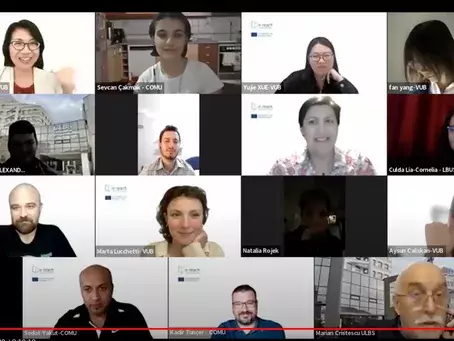
Workshop Overview
The E-Teach Online Workshop Series is designed to equip educators with the knowledge and skills necessary to effectively integrate digital tools and pedagogical techniques into their teaching practices. The series comprises multiple sessions, each focusing on different aspects of digital pedagogy.
Session 1: Key Concepts and Approaches to Digital Pedagogy
The first session of the workshop series, which took place on the 15th of May, delved into key concepts and approaches to digital pedagogy. The session aimed to introduce participants to the foundations of digital pedagogy, explore innovative teaching methods, and discuss the potential of technology to enhance learning experiences.
A total of 46 certificates were awarded for this session. These certificates include 38 Certificates of Participation, recognizing the attendees' active involvement and commitment, and 8 Certificates of Contribution, acknowledging the valuable insights and contributions made by specific participants during the workshop.
Key Highlights
Introduction to Digital Pedagogy: The workshop began with an overview of digital pedagogy, highlighting its importance in modern education and the benefits it offers to both teachers/educators and students.
Exploring Digital Tools: Participants were introduced to a range of digital tools and platforms that can be utilized in teaching, including learning management systems, online collaboration tools, and multimedia resources.
Importance of Pedagogical Theories in Digital Teaching and Learning: Participants were invited to reflect on the importance of pedagogical foundations for designing and delivering effective instruction in digital environments.
Digital Pedagogical Theories: Participants explored different pedagogical theories and frameworks for digital teaching, including the Cognitive Load Theory (CLT), Cogntive Theory of Multimedia Learning (CTML), Bloom's Digital Taxonomy, the Community of Inquiry Framework (CoI) and the Universal Design for Learning.
